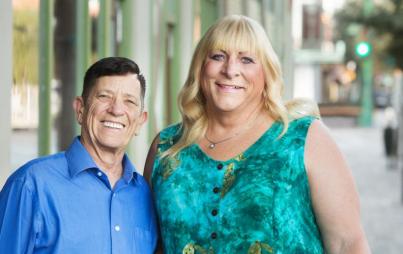
Read more stories from Ravishly's conversation series on police violence against women of color here. Have your own perspective to add? Email ravishly@ravishly.com.
The last year has seen an uprising in the resistance to police violence the likes of which we haven’t seen since the murder of Amadou Diallo in 1999. But even in this climate of elevated attention to the issue, we rarely hear about the ways in which police violence affects women. Or its frequency.
The avenues for legal and economically viable employment for women of color, including queer and trans women of color, immigrant women, and especially those who are all or several at the same time, are extremely limited. Whether we’re talking about a lack of workplace discrimination protections for LBTQ women, a lack of legal documentation to work in this country for immigrants, or frankly, a minimum wage that has been woefully inadequate for decades now—the economic outlook for many women of color is dim.
The result is that women of color, particularly Black women, low-income women, and trans women of color, are disproportionately represented in criminalized economies and disproportionately homeless. When the strategies low-income women of color use to survive are criminalized, and broken windows policing criminalizes everyday behaviors homeless people must do in public—sleeping, eating, urinating—this puts them at higher risk for police contact and abuse.
In short, criminalization plays a huge role in the lives of low-income women, women of color, LBTQ women, immigrant women, young women, and again, particularly those who are several or all of those at the same time.
Women, queer, and trans people of color are policed in some of the same ways that immigrants and people of color more generally experience policing and criminalization. Women of color are part of the two million people deported during the Obama administration. They are in the stop and frisk numbers that show that 80% of the people stopped and frisked in NYC were Black or Latinx.* Women of color are racially profiled, and distinctly affected by laws like Arizona’s SB1070. They populate jails, prisons and detention centers. And though they rarely make the news in the same way as their male counterparts, women of color are murdered by the police. In the last few months alone, the police have killed Jessie Hernandez in Denver, CO; Aura Rosser in Ann Arbor, MI; and Tanisha Anderson in Cleveland, OH.
But the policing of women of color can also take on characteristics that are particular to gender, sexual orientation, or gender identity and expression.
One of the ways this happens is with the use of condoms as evidence of prostitution-related offenses. Women, and transgender women of color in particular, are routinely profiled by the police as trading sex and stopped by police—a phenomenon known as “walking while trans.” It’s well documented that when police find condoms during these stops they are used as an avenue for further harassment or criminalization, and can lead to prostitution charges and arrests.
Women, queer, and trans people of color also experience sexual harassment at the hands of the police that’s very particular to perceived gender and sexual orientation, including homo/transphobic insults, inappropriate touching, groping, and rape.
Trans and gender non-conforming people are subjected to humiliating and unnecessary genital searches meant to designate their gender based on their anatomy.
These are not problems without solutions. Though the very foundation of American policing is rotten with colonialism and anti-Black racism, and ultimately its very elimination is the solution—there are as many alternatives as we are able to imagine; there are remedies that we can fight for today. We can end the use of condoms as evidence of prostitution-related crimes. We can decriminalize sex work and drugs altogether. We can work to pass legislation that requires police officers to identify themselves and limiting their ability to conduct unlawful searches.
And because we don’t want to add resources, money, and power to a system that is literally killing us, we should be vigilant on the kinds of reforms we get behind. Most importantly, we must dream big, and remember that when the the most marginalized people in our communities are safe, we are all safer.
*You’ll notice that I used an x rather than using the masculine general or the feminine or even @ (e.g. Latinxs). I started using this in written Spanish after talking with Spanish-speaking trans communities about the ways that they want to see themselves in written language. I have started to use the x in solidarity with them, to respect those who don’t fit that binary, and in an effort to question the false notion of a gender binary in written Spanish.







